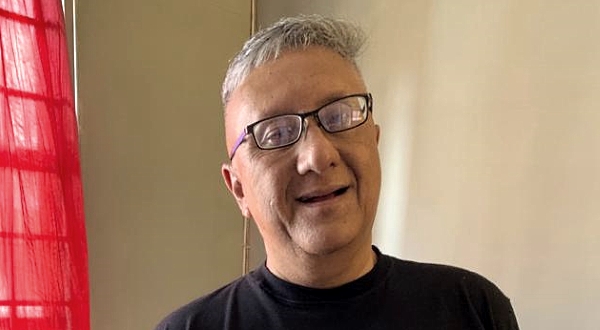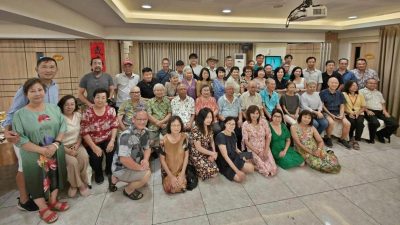
By Mohsin Abdullah
I've written about this before. But somehow I always knew I would be writing about it again. This is because politicians, many of them anyway, have a distinct dislike for surveys and opinion polls unfavorable to them. Hence this article.
Earlier this month, well known research outfit Ilham Center said they believed the strategy in "unifying" Umno and PAS will not last long.
Speaking at a forum on GE15, Ilham Center's research fellow associate professor Dr Hamidin Abd Hamid opined that the big win by BN at the recent Slim by-election cannot be used as a yardstick to determine support come GE15.
As he sees it, the main menu currently being served to voters is still the Malay unity rhetoric. But this will be tested to the brim when Muafakat Nasional (MN) holds seat negotiations to face the general elections.
According to Hamidin, Umno and PAS will continue to be plagued by the issue as it is one which is not easy to solve.
And there are other problems as well.
"As election draws near, there will be confusion with the worst case scenario being three-cornered fights between components of MN and its latest recruit, Bersatu," said Hamidin.
Another big confusion, said Hamidin, is the official set-up of Perikatan Nasional (PN) comprising parties currently forming the government.
He went on to list other problems and confusion to support his remarks which I will not repeat here as I think what was painted is a picture most of us have envisaged.
As the forum he was speaking at was jointly organized by Ilham Center and Universiti Malaya and attended (naturally) by ilham's top officials Hisomudin Bakar and associate professor Dr Yusri Ibrahim, remarks made by Hamidin are deemed "official" opinion and findings of the research firm itself.
All that riled up, PAS leader cum Kedah menteri besar Muhammad Sanusi Md Nor described Ilham Center's take on the matter as "rubbish and devoid of scientific facts".
He likened the remarks made by Ilham as attempts to create disunity among the "ummah", which to him was "evil". Work of the devil.
And he went on to accuse Ilham Center of being pro-Amanah, the party born following a major split in PAS.
Ilham Center, however, is unperturbed. Its CEO Azlan Zainal took to Facebook to say they had been accused of all sorts of things in the past, from being "crazy" to "partisan".
"But what we do is we analyze and give meaning to every data and fact obtained from the ground," he said.
Personally I find Ilham Center a professional, non-partisan outfit although admittedly there are people in the research firm who have worked for Pakatan Harapan when it was in government and could very well be still sympathetic to the coalition now in the opposition.
I stand corrected here but I feel the people in ilham draw a line between professionalism and personal political ideology. And many would agree they are efficient.
Many a time they got it right in "predicting" election results based on research findings.
Ilham Center and all research outfits for that matter, do not profess having crystal ball to see the future. Neither do they claim their findings must be accepted fully.
As I see it, politicians ought to see research findings as presented, no matter how unflattering it is, and use the information to "right the wrongs" or improve themselves, if they feel what is presented to be true.
Or, they have the option to just discard the findings. End of story.
But most of the time that is not the case!
As shown by the reaction of Sanusi, politicians love to go on a tirade when things presented are not to their liking – hurling all sorts of accusations on research outfits.
I recall the Kimanis by-election in Sabah held in January. I wrote about this for The Edge back then.
On the eve of the polling day, Ilham Center predicted that BN would lose. Former BN chairman Datuk Seri Najib Razak reacted rather "angrily", dismissing the prediction as "politically motivated".
On the same day, Umno deputy president Datuk Seri Mohamad Hasan also rejected the findings, accusing that the independent research firm "had always sided with Pakatan Harapan".
Ilham Center's response came also from Azlan, also via Facebook. He reminded Mohamad this was the same Ilham Center that had previously predicted BN victories for Cameron Highlands, Semenyih, Tanjung Piai as well as Rantau, where Mohamad himself contested.
"We are just reporting signals that we detected from the ground," said Azlan then.
As it turned out, Ilham Center got its prediction wrong.
For the record, this was the first time it did not get its forecast right in any by-election held since the 14th general elections.
Political research and surveys are based on a clear methodology – with specific procedures used to identify, select, process and analyze information. Apart from providing a basis for predicting the outcome of elections, research studies are often, or as I said earlier, should be used by politicians and political operatives to chart out their parties' future.
Blaming research outfits is no good. I'm not sure about PAS' Sanusi but Najib and Mohamad, I think, know this all too well. Yet they do it all the same.
We know why, don't we?
(Mohsin Abdullah is a veteran journalist and now a freelancer who writes about this, that and everything else.)
ADVERTISEMENT
ADVERTISEMENT


































